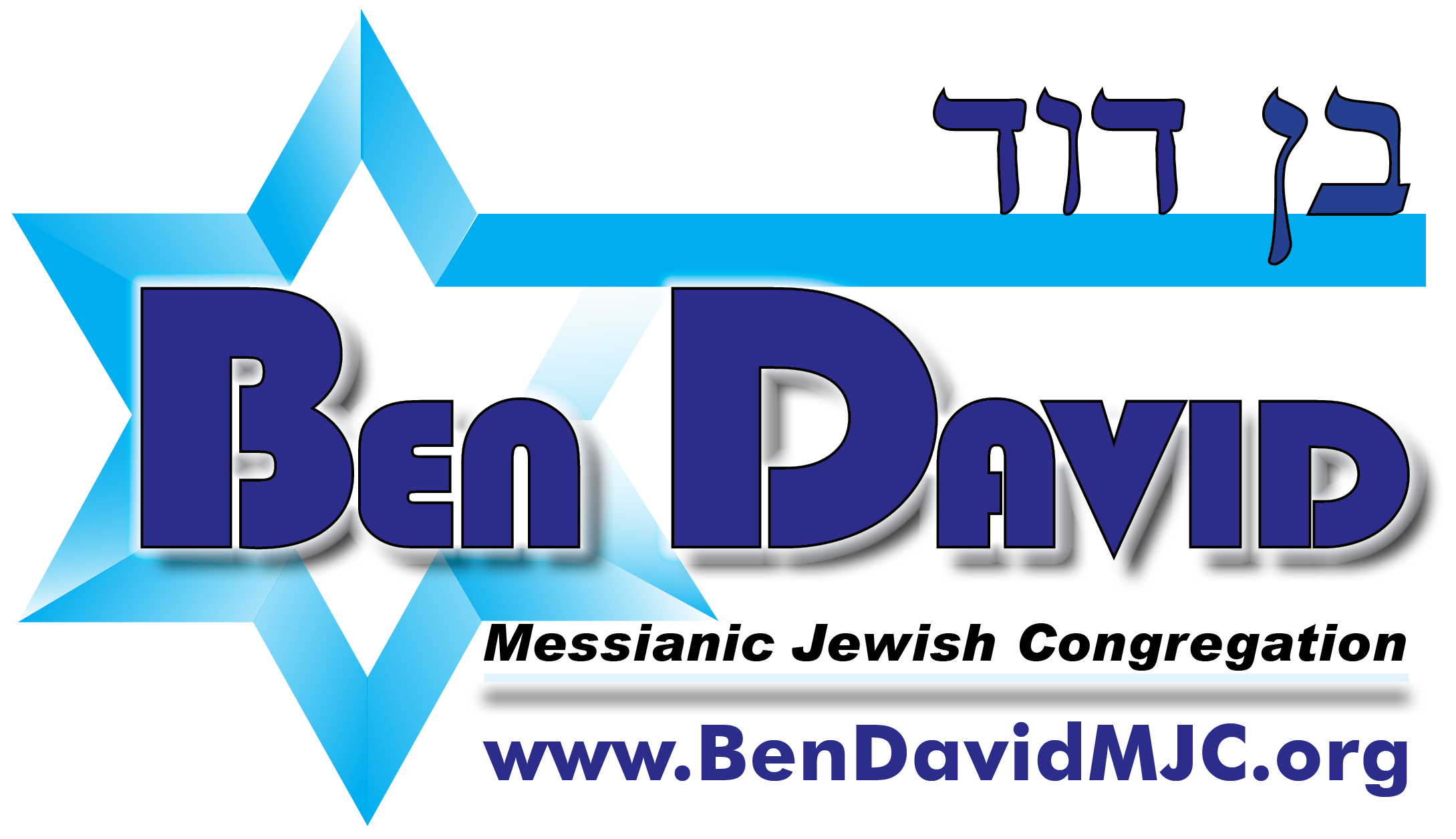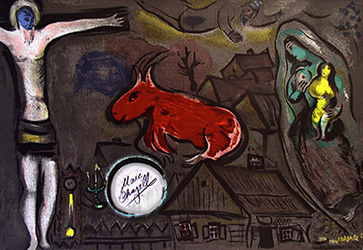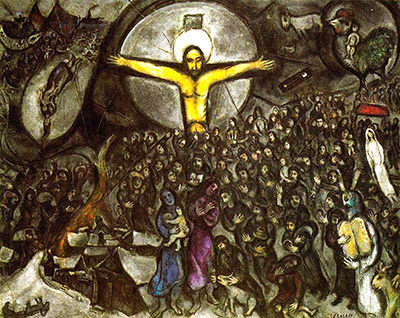Torah: Shemot 30:11 – 34:35; Haftarah Para: Ezekiel 36:16-38
- Shabbat Parah Adumah
Shabbat Parah Adumah - the Shabbat of the Red Heifer
On the Shabbat after Purim, two Torah Scrolls are removed from the Ark. The Sidrah of the week is read from the first, and from the second, the chapter of Parah Adumah, the Red Heifer. The reading of this chapter was instituted for this time of the year because Jews were required to purify themselves coming to Jerusalem for the pilgrimage festival of Passover.
Bamidbar 19:1-9: "This is the statute of the Torah which the LORD has commanded, saying, ‘Speak to the sons of Israel that they bring you an unblemished red heifer in which is no defect, and on which a yoke has never been placed. And you shall give it to Eleazar the priest, and it shall be brought outside the camp and be slaughtered in his presence. Next, Eleazar the priest shall take some of its blood with his finger, and sprinkle some of its blood toward the front of the tent of meeting seven times. Then the heifer shall be burned in his sight... Now a man who is clean shall gather up the ashes of the heifer and deposit them outside the camp in a clean place, and the congregation of the sons of Israel shall keep it as water to remove impurity; it is a purification from sin.’"
This passage is about the purification from sin for the entire nation of Israel, not as a community - that was the scapegoat, the Azazel, of Yom Kippur - but as individuals as they were coming to the Temple. The ritual was performed continuously until the destruction of the Temple in Jerusalem in the year 70 C.E. Therefore, the nation of Israel has not performed this Mosaic ritual for almost 2000 years. Were the Jews not able to remove impurity from sin in this period of time? Was God’s commandment annulled? Or was there an event that fulfilled all God’s requirements for the purification from sin?
Indeed, all these sacrifices that the Torah speaks about are images of Yeshua’s substitutionary sacrifice on the cross. His sacrifice fulfilled their meaning and replaced them all, and not only it is all sufficient to remove the impurity from sin, but it is the only sacrifice that can remove the guilt of sin once and for all. With the advent of Moshiach the Mosaic system of sacrifice was over, we have been purified by His shed blood instead that of the bulls, thus the validity of God’s commandment given in the Torah remains - man's purification from sin can be done only by a blood sacrifice.
"YESHUA — THE NEW MISHKAN"
This Parashah starts with a concept that is lost in our society.
Shemot 30:13-16: “This they shall give, every one who passes among those who are counted, half a shekel according to the shekel of the sanctuary; a half shekel shall be the offering of the Lord. Every one who passes among those who are counted, from twenty years old and above, shall give an offering to the Lord. The rich shall not give more, and the poor shall not give less than half a shekel, when they give an offering to the Lord, to make an atonement for your souls. And you shall take the atonement money of the people of Israel, and shall appoint it for the service of the Tent of Meeting; that it may be a memorial to the people of Israel before the Lord, to make an atonement for your souls.”
This passage says that everyone should give an offering to the Lord, but not only that, it says that we all are equal in God's eyes. We all have to contribute equally for the maintaining of our place of worship, the place from where we receive spiritual nourishment, the rich should not give more and the poor should not give less. In our society we think that the one who has more should contribute more, but this was not so under the Mosaic covenant. Everyone had to be an equal partner in building and maintaining the Mishkan, regardless of his social or economic status, by offering annually a half a shekel.
But this offering was not an ordinary offering. The beginning verse says in Hebrew: “Ki tisa et-rosh bnei Yisrael” literally: “when you elevate the heads of the sons of Yisrael” implying that the entire nation was to be “elevated” to a spiritual level in which the offering was to be made for a sacred cause. The entire nation of Yisrael was to come together for a common goal, to make atonement for their souls. But why half a shekel? The rabbis’ interpretation is that no Jew is complete unless he joins with others. As long as we are in isolation, each of us is only “half” thus lacking a spiritual completeness.
On the same line of thought, the Jewish apostles thought that we, too, as believers, are to come together for the uplifting of one another and not be "half shekel" believers. “Therefore, confess your sins to one another, and pray for one another so that you may be healed.” (James 5:16) “Let us consider how to stimulate one another to love and good deeds, not forsaking our own assembling together, as is the habit of some, but encouraging [one another].” (Hebrew 10:24) We need the support and the encouragement of one another. God did not give us the “half a shekel” to hoard it for ourselves, but to use it for His glory. If we receive equal blessings from our place of worship shouldn't we equally participate in building it?
Being equal in supporting our place of worship does not mean that we have equal calling, for the Torah further says in Shemot 31:2-3: “See, I have called by name Bezalel the son of Uri, the son of Hur, of the tribe of Yehudah. And I have filled him with the spirit of God, in wisdom, and in understanding, and in knowledge, and in all kinds of workmanship.” God called by name and gave Bezalel ben Uri, ben Hur, a godly spirit, with wisdom and understanding to build the Mishkan, its vessels and the priestly garments. So, too, you are called by name to participate in the building of the new Temple of the body of believers: “And He gave some apostles, and some prophets, and some evangelists, and some pastors and teachers for the equipping of the saints for the work of service, to the building up of the body of Messiah.” (Ephesians 4:11-12) The true enjoyment of our God given gifts comes not from possessing them, but from using them as God intended — in things that count for eternity, in the service for the saints, for one another.
Then the Torah introduces another interesting concept somehow also lost in our society. Shemot 31:13: “However, My Shabbats you shall keep; for it is a sign between Me and you throughout your generations; that you may know that I am YHVH (the LORD) Who makes you holy.” The beginning word, “however,” implies that it does not matter how worthy is the work of building the Mishkan it must be stopped and not done on Shabbat. It implies that obeying God’s commandments is more important than the object itself. The holiness comes from God - He makes us holy - not the building, not the altar or the priestly vestments. He is Holy and He is the only One who is Holy, and other persons, places or things are only holy as He has touched them, choosing them for His service. For example, Torah is not holy because of the parchment that it is written on, but it is holy because in it we find God's holy words. Oftentimes we elevate persons, projects, and objects to the status of idols, disregarding God's priorities.
One such priority is to observe the Shabbat in which we reconnect with God, in which we put aside all earthly preoccupations and concentrate on the spiritual ones. Shemot 31:16: “And the sons of Israel shall observe the Shabbat, to celebrate the Shabbat throughout their generations as an everlasting covenant.” Which in Hebrew is: “V’shamru Bnei Yisrael et haShabbat la’asot et haShabbat l’dorotam brit olam” — this Hebrew line became a beautiful worship song for the Friday night service.
From other Biblical prophetic passages this word “everlasting” means forever - during the Biblical times, during the Talmudic times, during the New Covenant times, during the Millennium and during the Eternity. Our goal as individuals and as a congregation of Messianic believers is to bring the Good News to the Jewish people, and the first step in doing that is to observe the Shabbat, “the most vital force in Jewish life.” Without observing the Shabbat, we will always be outsiders, trying to “convert” them to a foreign religion.
But what does it mean to observe the Shabbat? It means to worship the Lord on the day that He chose, on the day that He sanctified, as it is explained in Isaiah 58:13-14: “If you restrain your foot because of the Shabbat, from pursuing your own pleasures on My holy day; and call the Shabbat a delight, the holy day of the Lord honorable; and shall honor it, not doing your own ways, nor pursuing your own pleasures, nor speaking of vain matters; Then shall you delight yourself in the Lord; and I will cause you to ride upon the high places of the earth, and feed you with the heritage of Ya’akov your father.” It is a day to put aside all vain preoccupations, the profane - don’t even talk about them - and concentrate on doing the sacred by worshiping the Creator of the universe, and you will be rewarded with peace, joy and the heritage of Ya’akov. Why Ya’akov and not Avraham? Because from Ya’akov came the twelve tribes which formed the Jewish nation. Avraham had Yitzhak and Ishmael, and Yitzhak had Ya’akov and Esav, but Ya’akov, who later was renamed Yisrael, is the true father of the Jewish nation and thus the Jewish heritage. Observing the Shabbat not only preserves this Jewish heritage — the rich root of the olive tree of which Rav Shaul writes in the letter to the believers in Rome, chapter 11 — but also becomes a witnessing tool for God as the creator of the universe, for the concept of Shabbat comes only from the Torah.
But, just as in our day-and-age, while we are in a spiritual uplifting state and delight ourselves in the Lord, haSatan is prowling around to see if he might somehow devour your joy (1 Peter 5:8), so, too, the Israelis experienced such an attack. While Moshe was on top of the mountain talking with God, something incomprehensible happened among the Jewish people, the sin of the Golden Calf. A cursory reading may seem like mass idol worship, but a careful analysis of the text reveals a different story.
Shemot 32:1-5: “And when the people saw that Moshe delayed to come down from the mount, the people gathered around Aharon, and said to him, ‘Rise up, make us gods, which shall go before us; and as for this Moshe, the man who brought us out of the land of Egypt, we do not know what became of him!’ And Aharon said to them, ‘Take off the golden earrings, which are in the ears of your wives, of your sons, and of your daughters, and bring them to me.’ And all the people took off the golden earrings which were in their ears, and brought them to Aharon. And he received them from their hand and bound it up and fashioned it into a molten calf; and they said, ‘This is your god, O Yisrael, which brought you up out of the land of Egypt.’ And when Aaron saw it, he built an altar before it; and Aaron made a proclamation, and said, ‘Tomorrow is a feast to the LORD.’ ”
To understand what happened we have to read the entire passage, because only then we can understand (1) who are “the people,” (2) who “made” the golden calf and for what purpose, (3) what God told Moshe up on the mountain and what Moshe understood, and (4) what Moshe did after he came down from the mountain.
(1) “The people” it turns out - from chapter 32:28 - were only about three thousand, a small number in comparison with the six hundred thousand men plus women and children which came out of Egypt — over a million souls. Also, these people may not have been Israelis as the sentence from 32:4 alludes: “This is your god, O Yisrael.” They did not say “This is our god” because they were outsiders addressing the Jews. Regardless of who they were, these people did not deny the LORD, they explicitly wanted to replace Moshe, whom they believed was dead.
The error of these "people” was that, believing Moshe was dead, they needed someone or something to represent them before God, to guide them further into their journey in the wilderness. To Aharon, who knew these people from the time of Egyptian idolatry, at first, it did not seem a form of idolatry. Just as today, in error, people have the need for a tangible intermediary to God in the form of a person, a building, a representation or any other man-made religious practice. But we have only one intercessory for our wilderness journey, 1 John 2:1 says: “if anyone sins, we have an Advocate with the Father, Yeshua haMashiah the Righteous.”
(2) Now, who “made” the Golden Calf? It is inconceivable that Aharon the future High Priest would make an idol for people to worship; also, he was never rebuked by God for this incident. What Aharon did, as explained in 32:25, was to gather the gold bound it up and throw it in the fire. It can be presumed that the “people” who requested it used some kind of Egyptian sorcery to make the Golden Calf, which, by the amount of gold brought to Aharon was not very big. When Aharon saw what came out, he built an altar, not with the calf, and declared a festival for the LORD, not for the calf.
(3) God tells Moshe on the mountain exactly what happened and that He intends to annihilate those "people." But Moshe misunderstands who “those people” are and pleads for the entire Jewish nation.
(4) As Moshe comes down from the mountain he realizes what happened and does exactly what God wanted to do in the first place, annihilate the trouble makers.
The sin of the entire nation was that they did not resist the calf worshipers but even joined in the revelry rebelling against Moshe. But as the Brit Chadashah comments they did not rebelled against God but against His messenger: “This is the Moshe who said to the sons of Yisrael, 'God will raise up for you a Prophet like me from your brethren'… Our fathers were unwilling to be obedient to him, but repudiated him and in their hearts turned back to Egypt, saying to Aharon, 'make for us gods who will go before us; for this Moshe who led us out of the land of Egypt—we do not know what happened to him.' At that time they made a calf and brought a sacrifice to the idol, and were rejoicing in the works of their hands.” (Acts 7:37-41) This "Prophet" of which Moshe spoke came few hundred years later in the person of Yeshua and the Jewish people would again rebel against God's messenger.
Moshe, in his human compassion, pleaded with God for people's forgiveness and God forgave all who did not sin against Him but against Moshe (Shemot 32:33). Years later, the Jewish people rebelled against Yeshua, and just as Moshe pleaded for their sins, so, too, Yeshua, while on the cross, pleaded for their sins to be forgiven even though they were sinning against God Himself. That was because Yeshua’s ministry was not just as of a messenger as Moshe, but a ministry of righteousness of the Son of God who had the power and the authority to forgive — He offered Himself as an atonement sacrifice for all. He was bought by the Temple priests with thirty pieces of silver shekels — atonement money — to make atonement for our souls, just as was prescribed in the earthly Mishkan, and in His compassion He extended forgiveness to all who were — and are — willing to come to Him and repent of their sins, to make "teshuvah."
“Now if the ministry of death, in letters engraved on stones, came with glory, so that the Bnei Yisrael were not able to gaze into the face of Moshe because of the glory of his face, fading as it was, then how much more will the ministry of the Ruach HaKodesh come in glory? For if there was glory in the ministry of condemnation, how much more abounds in glory the ministry of righteousness.” (2 Corinthians 3:7-9)
As magnificent as the Mishkan must have been it was only a shadow of the things from above. Moshe asked to see the glory of the LORD but he could not see that which is immortal with mortal eyes. Through the belief and faith in Yeshua we will be able to see the glory and the splendor of the heavenly Mishkan. The mystery of the "Ekklesia," the body of believers, the new spiritual Temple, is revealed in us coming together, Jews and Gentiles alike, and worshiping a God of mercy and compassion. Let us all equally use our time, talents and treasures for the uplifting of this new spiritual Mishkan.
Shabbat Shalom.



